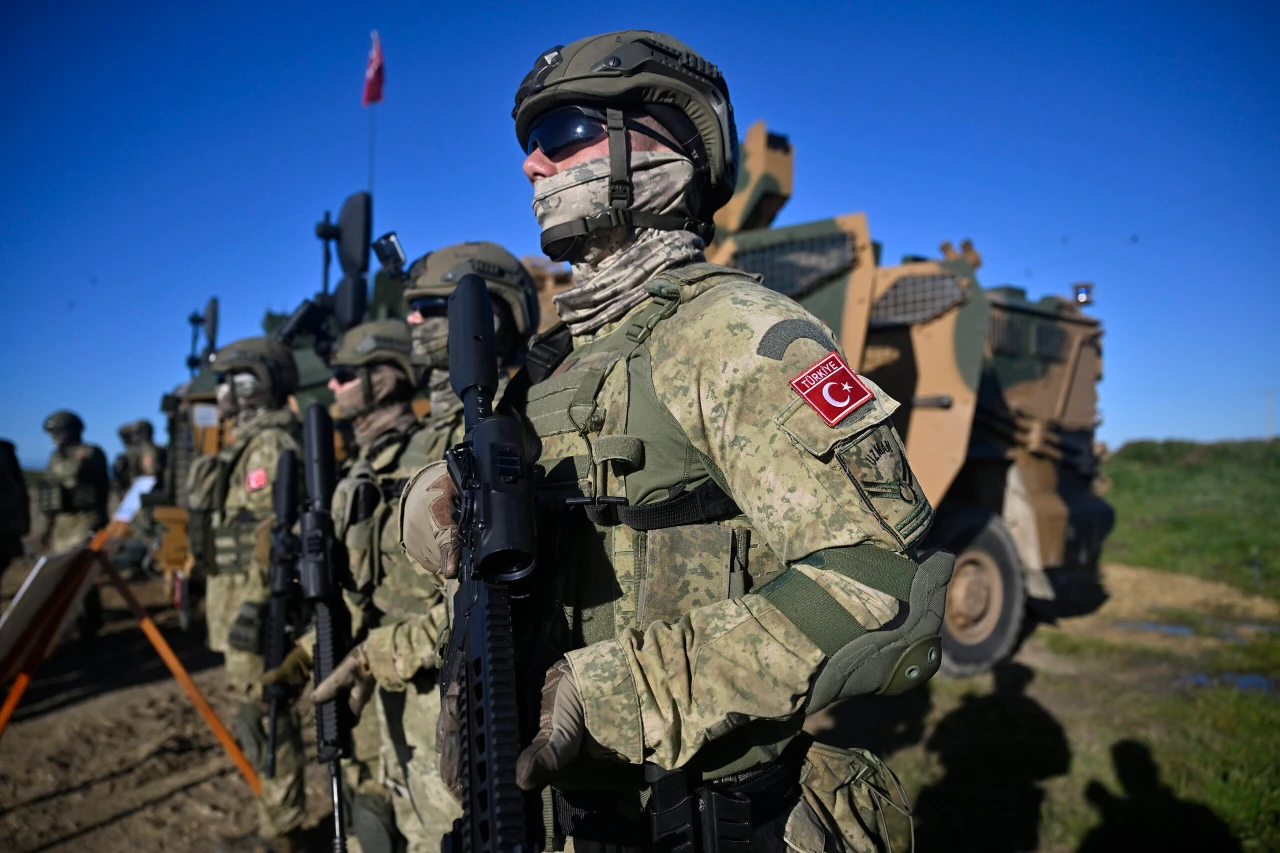Syrians under Assad’s regime lived in fear, using coded language to avoid surveillance
 Member of Syrian opposition forces steps on a torn up portrait of Bashar al-Assad in Hama, a day after opposition forces captured central-west city, on December 6, 2024. (AFP Photo)
Member of Syrian opposition forces steps on a torn up portrait of Bashar al-Assad in Hama, a day after opposition forces captured central-west city, on December 6, 2024. (AFP Photo)
Syrians lived under constant surveillance by the Assad regime, with the pervasive fear that “the walls have ears,” for decades. This fear prevented them from speaking freely, even in their own homes, as they feared being overheard by the regime’s secret police. Syrians used coded language to avoid Assad’s informant, according to WSJ.
Why it matters?
The Assad regime’s control permeated all aspects of civilian life, creating a climate of fear in which anyone, from street cleaners to colleagues, could be an informant. This widespread surveillance forced Syrians to develop a complex coded language to communicate safely. This language allowed them to express even the smallest criticisms or fears about the government.

Details
- Surveillance everywhere: Anyone could be an informant—neighbors, friends, even family members.
- Code words: Words like “dollar” were replaced with euphemisms such as “the green,” while the prison was referred to as “going to your aunt’s house” to mask its true meaning.
- Identifying informants: A comment like “This person has nice handwriting” was a subtle way to suggest someone might be working for the regime.
Zoom in
Maysoun, who fled Syria in 2012, recalls how she had to rely on coded language in daily conversations. “We would mime the act of pointing to the ceiling to reference the government. It was a way of talking about them without directly mentioning their name,” she explained.
Zoom out
Although Assad’s regime has fallen, the culture of fear persists. Syrians who fled the country are slowly returning, but the scars of surveillance and the need for coded communication are not easily erased. “I still have nightmares that this is all a dream and that they’ll come for me,” said Thabet Birro, 60, now living in Dubai.
Regime’s own coded language
The Assad regime itself also used euphemisms to mask its brutal tactics. For example, the secret police would invite individuals for “a cup of tea” when summoning them for interrogation, a term that concealed the true danger of the situation.



